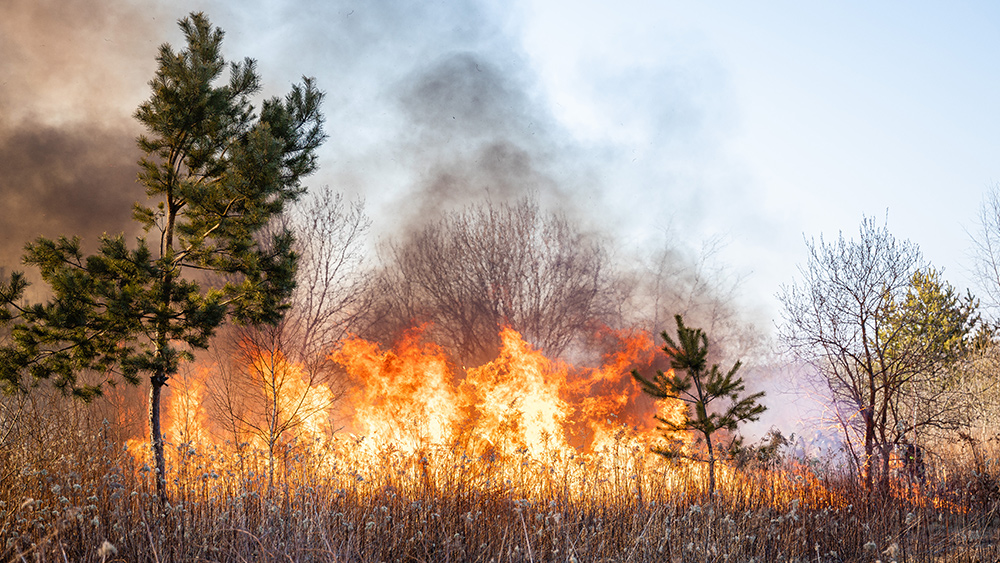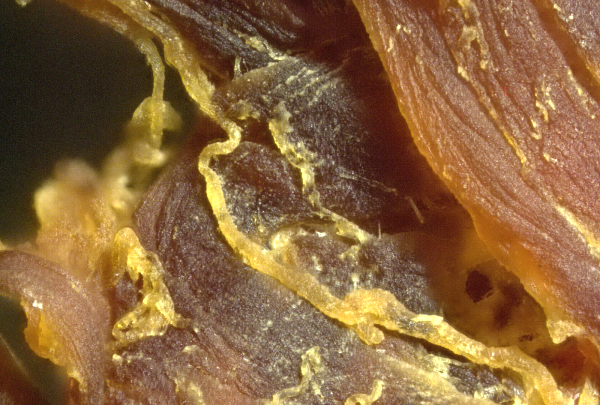Nearly a third of Sierra Nevada’s conifer forests destroyed by drought, wildfires
11/07/2022 / By Kevin Hughes

Natural disasters such as drought and wildfires that plagued California for more than a decade have destroyed 30 percent of the Sierra Nevada conifer forests.
A recent study done by the University of California, Berkeley (UCB) measured the decrease in conifer forests that cover the southern area by utilizing geographical forest structure estimates, wildfire perimeter data and forest disturbance tracking algorithms.
Apart from the overall decline, the team also discovered that half of the mature forest habitat and 85 percent of high-density mature forests were either completely ruined or turned into low-density forests.
Regions with high primary canopy cover and without tall trees were most vulnerable to canopy cover decreases, which the team thinks explains the excessive declines of mature habitats. Researchers are now pushing wildlife officials to actively manage forests rather than just identify threatened areas.
The Sierra Nevada region stretches across 27 million acres of land that is abundant with wildlife and various kinds of trees.
The region, which spreads from Lake Tahoe in the north to the Sequoia National Forest in the south, has been hit by constant drought, leaving pines more exposed to wildfires and bark beetle invasions.
From 2011 to 2020, 30 percent of conifer forests in the southern Sierra Nevada have died due to these threats. During the same time, 85 percent of the region’s dense mature forests have either died or substantially thinned.
“It’s kind of a wakeup call, even to those of us that are kind of steeped in this field. We’re moving from knowing this is a problem to quantifying the problem,” Zackary Steel, a postdoctoral researcher at UCB and lead author of the study, told the Sacramento Bee. (Related: Human intervention has made forests less resistant to drought, pests, wildfire.)
Sierra Nevada wildfires becoming bigger and more severe
The Sierra Nevada Conservancy mentioned that wildfires are becoming bigger and more severe now than before.
Such destructive fires include the 2021 Caldron Fire that burned 221,835 acres in the Eldorado National Forest and other areas of the Sierra Nevada in El Dorado, Amador and Alpine County.
These areas once displayed abundant evergreens growing from the ground, but after the Caldron fire the only thing apparent is a desolate landscape.
“Fires like the Dixie, Caldor, Creek and North Complex have devastated communities and caused significant damage to the resources the region provides, including water, wildlife habitat, recreational access and carbon storage,” Sierra Nevada Conservancy said in a statement.
“Impacts from large, damaging wildfires in the Sierra are felt across the state as they degrade air quality, jeopardize the state water system, and offset progress towards California’s air quality and climate goals.”
The freshly pruned conifer forests rose from 25 percent in 2011 to 33 percent in 2020, while recently burned mature forests grew from seven percent to 20 percent over the same time.
The Sierra Nevada region plays a crucial role in California’s water system, with more than 75 percent of the state’s residents getting their drinking water from the area.
Snowpack is critical for water storage, with the Sierra forests and meadows playing significant roles in assuring water quality and dependability.
But the quantity and quality of water from the Sierra Nevada headwaters are endangered by congested forests, deteriorated meadows and a changing climate.
Congested forests also endanger the water supply infrastructure. They are also less flexible to drought, beetle invasion and wildfire. The result is unparalleled tree mortality in the Sierra Nevada with 129 million killed by beetles and drought alone since 2010.
Forests of dead trees present many challenges for water management – from a rise in flooding and landslides to a decrease in water quality and reservoir capacity.
Follow Environ.news for more news about natural disasters.
Watch the video below about the California wildfire allegedly started by a pyrotechnic device.
This video is from the ZGoldenReport channel on Brighteon.com.
More related stories:
CONFIRMED: Wacko environmentalism and forest mismanagement caused California fires.
Los Angeles desperately trying to meet water demand as drought continues to threaten future supplies.
Study: Demand for biodiesel in Europe has caused huge areas of forest land to disappear.
Sources include:
Submit a correction >>
Tagged Under:
California, Climate, Collapse, conifer forests, Drought, Ecology, Eldorado National Forest, environment, Lake Tahoe, natural disasters, real investigations, Sierra Nevada, water supply, water system, weather terrorism, wildfires
This article may contain statements that reflect the opinion of the author
RECENT NEWS & ARTICLES
COPYRIGHT © 2017 DISCOVERIES NEWS




















